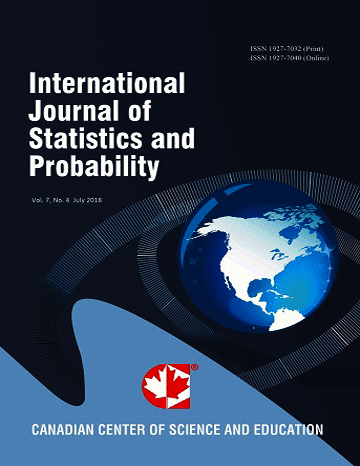Cross-Sectional and Time Series Data as the Basis for Panel Modelling: The Case of Kidnappings in México From 2010 to 2019
- Juan Bacilio Guerrero Escamilla
- Arquímedes Avilés Vargas
Abstract
This paper presents the elements entailing the building of a panel data model on the basis of both cross-sectional and time series dimensions, as well as the assumptions implemented for the model application; this, with the objective of focusing on the main elements of the panel data modelling, its way of building, the estimation of parameters and their ratification. On the basis of the methodology of operations research, a practical application exercise is made to estimate the number of kidnapping cases in Mexico based on several economic indicators, finding that from the two types of panel data analyzed in this research, the best adjustment is obtained through the random-effects model, and the most meaningful variables are the Gross domestic product growth and the informal employment rate from the period 2010 to 2019 in each of the states. Thus, it is illustrated that panel data modelling present a better adjustment of data than any other type of models such as linear regression and time series analysis.
- Full Text:
 PDF
PDF
- DOI:10.5539/ijsp.v10n2p68
Index
- ACNP
- Aerospace Database
- BASE (Bielefeld Academic Search Engine)
- CNKI Scholar
- DTU Library
- Elektronische Zeitschriftenbibliothek (EZB)
- EuroPub Database
- Excellence in Research for Australia (ERA)
- Google Scholar
- Harvard Library
- Infotrieve
- JournalTOCs
- Mir@bel
- Open policy finder
- ResearchGate
- Technische Informationsbibliothek (TIB)
- UCR Library
- WorldCat
Contact
- Wendy SmithEditorial Assistant
- ijsp@ccsenet.org
